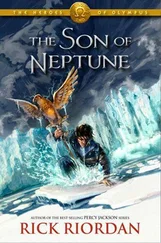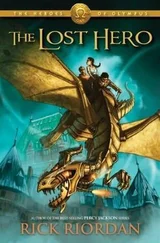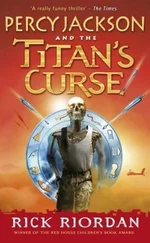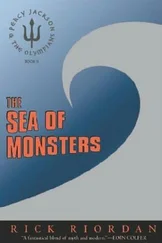(See Briares, Hephaestus, Typhon)
Mount Olympus
Highest mountain in Greece. Rising to 9,677 feet, Mount Olympus’ peaks are often shrouded in clouds or covered in snow. This led the early Greeks to consider the mountain the home of their main deities, the twelve “Olympian” gods. (Only Hades, Lord of the Underworld, shunned it, preferring his own gloomy realm.) Life in the palaces built by Hephaestus on Olympus was splendid. At their great banquets the gods drank ambrosia, their divine liquor, served by Ganymede, their beautiful cupbearer, while Apollo played the lyre and the Muses sang. Mortals and demigods were permitted to visit occasionally, but Olympus was no heaven in a Christian sense; the spirits of dead humans descended to Hades’ Underworld.
(See Ganymede, Hephaestus, Hera, Mount Othrys, Zeus)
Mount Othrys
Mountain in north-central Greece. Mount Othrys was seized by the Titans in the war that they fought against Zeus and his brother gods, the Titanomachia. But Zeus had already occupied the far grander peak of Mount Olympus; Mount Othrys is only 5,610 feet high.
N
Naiads
Nymphs who lived in fresh water, especially in streams and brooks. Like other nymphs, they were generally benevolent and were often worshipped by human beings. Though not always immortal, they had very long lives and remained always young and beautiful.
(See Hylas, Nymphs)
Nemean Lion
Enormous lion that terrorized the area around Nemea. The Nemean Lion’s hide was so thick that normal weapons—arrows, swords, clubs—were useless against it. Killing it was the first of the Twelve Labors performed by Hercules, and he finally succeeded by closing in and sticking his arm down the creature’s throat to choke it to death. He then tried to skin it, but was unable to do so until the goddess Athena showed him how: by using the lion’s own savage claws. Wearing the lion’s hide made Hercules almost invincible.
(See Hercules)
Nemesis
Goddess of vengeance (to the people she punished) and arbiter of justice. The daughter of Themis, at times she is depicted with a helm and wheel and has also been portrayed driving a chariot pulled by griffins. Her name comes from the Greek word némein , meaning “to give what is due” and is now also synonymous with the word enemy .
Nereids
Fifty sea nymphs, or mermaids, daughters of the sea nymph Doris and Nereus, the old man of the sea. The Nereids lived in the depths of the ocean and loved to play amid the waves. Three Nereids were brought up by Aphrodite, the goddess of love: Acis, Arethusa, and Thetis, all of whom were golden-haired and beautiful. Thetis was especially attractive. She caught the eyes of mortals and gods and was desired by both Zeus and his brother Poseidon. To avoid family quarrels, Zeus arranged for the (human) king of Thessaly, Peleus, to marry her. Thetis disliked Peleus, however, and tried to escape him. From their unhappy union was born the hero Achilles, the greatest warrior of the Trojan War.
(See Andromeda, Nereus, Nymphs, Poseidon)
Nereus
Minor sea god renowned for his wisdom and prophetic powers and known as the “old man of the sea.” Nereus lived in the ocean’s depths, but surfaced at times to help shipwrecked sailors. His daughters with the sea nymph Doris were known as the Nereids.
(See Nereids)
Nymphs
Minor female divinities personifying aspects of wild nature. They came in many different guises: Dryads and hamadryads were tree nymphs; lemoniads were meadow nymphs; oreads were mountain nymphs; naiads were fresh water nymphs; the Nereids and oceanids were sea nymphs. All were beautiful and forever young, and so loved by both men and gods. (The Greek word nymphe also meant “unmarried young woman.”) Nymphs themselves also sometimes fell in love with mortals, occasionally abducting especially handsome boys. Nymphs often accompanied gods such as Dionysus, Pan, Artemis, and Apollo, while satyrs pursued them ardently if not always with success. Nymphs were often worshipped by mortals, and they could grant humans minor favors such as helping the sick and guiding lost hunters.
(See Andromeda, Artemis, Charybdis and Scylla, Dionysus, Dryads, Hylas, Naiads, Nereids, Oceanus, Pan, Satyrs, Zeus)
O
Oceanus
Titan, and the all-encompassing Ocean . This was a great freshwater river rather than a sea that, according to early Greek geography, encircled the whole inhabited Earth beyond the east and west and fed all the Earth’s rivers through subterranean sources. As a god, Oceanus was considered to be the son of Ouranos (the sky) and Gaia (the earth), the two primeval deities. He was the father of the oceanids (sea nymphs), and was considered a great, mainly benevolent cosmic force, essential for maintaining the Earth’s natural life by renewing the rivers and streams.
Odysseus
King of Ithaca, a tiny island. Odysseus is the focus of Homer’s second grand poem, The Odyssey , which relates Odysseus’ adventures on his long way home from the Trojan War (the real distance from Troy to Ithaca is small but the legendary distance is vast). The poem opens with Odysseus still held captive by Calypso, a bewitching nymph, after ten years. Released on Zeus’ orders, he set out with his companions on an epic journey. On the way he encountered Cyclopes, one-eyed, man-eating monsters; sailed past Sirens, whose songs lured sailors to their death; outwitted the witch Circe, who turned men into pigs; and visited the Underworld. A colorful, wily hero, he survived more by his wits than his strength. Finally shipwrecked, with all his crew drowned, Odysseus reached the land of the Phaecians. There the beautiful princess Nausicaa found and befriended him, and introduced him to the king. The Phaecians listened to his tales, gave him gifts, and sent him back to Ithaca. But his adventures did not end when his ship touched his native shores, for in his twenty-year absence his faithful wife Penelope had been pestered by suitors. Thinking Odysseus dead, they wanted to marry her and gain the kingdom. In disguise, Odysseus returned to his palace to take revenge—by killing all the suitors with a great bow that he alone had the strength to draw. Then at last he and Penelope were reunited in the great marriage bed he had made long ago.
(See Aeolus, Athena, Calypso, Circe, Cyclopes, Diomedes, Ithaca, Laistrygonians, Lotus, Medea, Odyssey, Polyphemus, Poseidon, Sirens)
Odyssey, The
Second of Homer’s great epic poems. The Odyssey relates the adventures of Odysseus on his long way home from the Trojan War to Ithaca.
(See Aeolus, Ithaca, Odysseus, Polyphemus)
Oedipus
Son of Laius, king of Thebes. To avert a prophecy that his son would kill him, Laius ordered a shepherd to expose baby Oedipus on a mountainside. But the shepherd saved Oedipus, who was brought up by the king of Corinth as his own. Oedipus, warned by an oracle that he would kill his father and marry his mother, fled Corinth to avoid this. But at a crossroads near Thebes he met and killed Laius, who he failed to recognize, and won a debate with the Sphinx, an enigmatic lion-like creature. Reaching Thebes, Oedipus was hailed as king and married the widowed queen Jocasta. Years later, as plague ravaged Thebes, Oedipus heard from the Delphic Oracle that the killer of Laius was the plague’s cause. Finally he realized that he had killed his own father. Hearing the news of her husband’s murder and her own incest, Jocasta committed suicide. Oedipus blinded himself and went into exile.
Читать дальше











